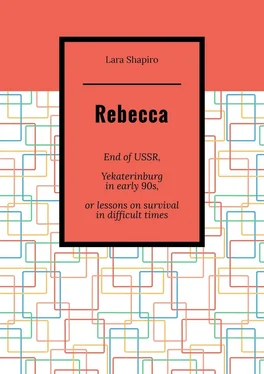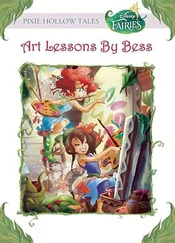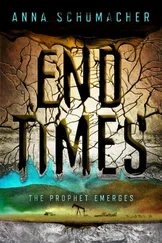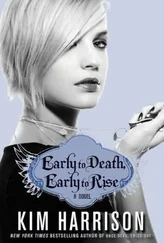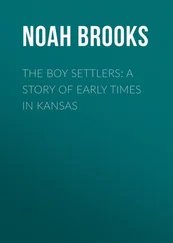I loved to read fairy tales to my little sister. She was only three years old, and she could not read yet, but she liked the large, varnished books, with colorful pictures. Very remarkable people wrote tales. One of them, for sure, had a big hat with a huge ball-point pen, with which he wrote his fairy tales. His name was Charles Pierrot. Or something like that. The other two were jolly brothers, laughing all the time, making faces, they were Brothers Grimm.
Then it became more serious. After reading my entire library, my curious nose was stuffed into my mother’s closet. And what am I discovering there? Shocking names! “Woe from the Wit,” “Walking along agony”, " How the steel was tempered.” My curiosity knew no bounds: how there can be woe from the wit? How can metal be tempered? People run barefoot and dousing themselves with water. Why should iron be attributed to human qualities? And who went through the agony and why?
No matter how I tried, I still could not understand who went through agony and suffering. I just liked that there were two beautiful women in the book, with exotic names: Katya and Dasha. I loved reading about beautiful women. In my mother’s room, there was a huge portrait of a beautiful woman in black, with sad eyes. Her name was Nina Chavchavadze. She was the widow of Alexander Sergeyevich Griboyedov, the one who wrote “Woe from the wit.” Mom said she was sad because her husband was brutally killed by angry Iranians when Alexander Sergeyevich worked there with a diplomatic mission. What a fierce, cruel death, I thought. And how could the Iranians tear such a holy man: smart and intelligent? They were probably real barbarians. And I was wildly afraid of the Iranians.
I liked “Woe from the wit”, although I didn’t understand anything there either, being eight years old. But there were many expressions that mother often used in her speech: – is it possible to chooser remote back streets for walks?, when you wander, you return home, and the smoke of the fatherland is sweet and pleasant to us. – Ah, that is where it all came from, I thought. I considered Griboyedov to be a member of our family, and Nina Chavchavadze – the ideal of a woman to strive.
Unlike “Walking along the agony” and “woe from the wit”, “How the steel was tempered” I read in one breath, except love scenes, which were stupid and annoying, and I skipped them. The book was understood by me, as it seemed to me then. I bowed before the courage and stamina of Pavka Korchagin, the strength, courage and endurance of the people who built the narrow-gauge railway. From this book, I understood what the meaning of willpower is, determination, betrayal, meanness. To be able to respect and appreciate the work of others, you need to be able to work yourself, be prepared to overcome difficulties, and hardships. Pavka Korchagin will become my ideal for many-many years. And only with the time comes the awareness of unnecessary and absurdity of all these victims, deprivations and the narrow-gauge railway itself.
But further, reading on the school curriculum, so to speak, joined my reading, out-of-class reading. For example, “Song of the Prophetic Oleg”: “as Prophetic Oleg is now climbing, to avenge the unreasonable Kharzas.” This immediately raises the question: who are the Kharzas, and why does Oleg want to take revenge on them? But this is not about that; there is an entirely different intrigue. This Oleg had a horse, beloved. The horse was faithful; Oleg was taken out of many battles; he was saved from many troubles. But then someone say to him that “you will get death from your horse.” Imagine the injustice in the structure of life, dishonesty and even somehow smacks of betrayal. Or maybe it was said out of jealousy, or out of envy, now no one already knows, but only Oleg ordered his horse to be taken away. He became sad and sorrow; imagine if you were told so.
Years passed, Oleg forgot to think about his horse, when he was informed that the horse had died. The horse died in sorrow, unable to withstand separation and did not say goodbye to the master. Oleg, of course, was very saddened that he was so stupidly fooled. He went to look at his favourite horse, dead and harmless. And so he stands over his horse, thinking about the injustice of life, and then a serpent crawls out of the horse’s head, stings Oleg, and he dies.
Of course, we a little incomprehensive and even offended, why Prince Oleg died such a ridiculous death. Still, he was an experienced person, suffered many battles. He could wave off this snake with a stick or a stone. The author somehow did not think of this moment, somehow, he hurried to finish his work, or maybe he was afraid of Green Peace’s anger, or he loved animals and felt sympathy for them. Only we are not aware of this. Shota Rustaveli has a more straightforward plan in this regard, in his poem “The Knight in the Tiger Skin” – in grief – everyone is crying, in joy – everyone is crying too.
However, for the current generation, to realize the importance of reading, it’s better to start not with “The Knight in the Tiger Skin”, but with Fonvizin’s play “Undergrowth,” where the young man is asked: “Is the door a noun or an adjective?”: if it exists by itself, then it is a noun, and if it is attached to the jamb, then the adjective”. “Why does the gentleman need to know geography? What for is the cabman?” Cab is the type of taxi used to be.
And since we were talking about Denis Ivanovich Fonvizin, do you, young reader, know that Fonvizin wrote his first draft version of the “Undergrowth” when he was fifteen years old? That he lived a short life, only 47 years old, was persecuted by Catherine 2, was paralyzed, but even paralyzed, he continued to write, so important it was for him.
Speaking about the importance of literary work in the life of a writer, it is worth mentioning Gogol, Nikolai Vasilievich, who wrote his Dead Souls for almost 17 years, burned and rewritten twice the second volume, brought himself to exhaustion and died at the age of 43 years. The same can be said about the already mentioned earlier Taras Grigorievich Shevchenko, sent to the army, because of his books, where he was forbidden to write.
Almost all writers and poets somehow paid for their books severe price, were lonely, persecuted, suffered from diseases and poverty. But they continued to write, dear reader, for you and me.
Or here is Conan Doyle. Well, how can you compare modern Hollywood detectives with Sherlock Holmes? You are alone, in a vast empty apartment, half-dark and half-gloomy, where everything creaks, cries and drips, and you sit and read. You are afraid to lower your legs to go to the kitchen to drink some water, to moisten your throat, which was dry from fear. It seems to you that undoubtfully colourful ribbons will crawl out from under all sofas, beds, ventilation systems; and evil muzzles of the Baskervilles dogs will climb on you.
And when we found out that Edgar Allan Poe was the mentor of Conan Doyle, we surely read his story about a rabid gorilla who had escaped from the zoo, cut into pieces an adult, and put him in a drain pipe. And for a long time later we hid prickly-cutting objects and tried to turn off the lights early, so as not to attract wild monkeys “by the light”.
And the hit of Yesenin:
“I am a Moscow mischievous, reveler
throughout the Tversky district,
Every dog in the alley
knows my light gait.”
Every tattered horse
by head nods towards me.
I am a good buddy for animals.
Every my verse heals the soul of the beast .”
Something like this, I’m writing as a keepsake without looking at Google. This hit, in our time, was much more popular than “Twenty dollars in my pocket.”
Читать дальше
